Dr. Seyed Javad Miri gave an interview to Mehr News Religion and Thought Service about the Boko Haram, an extremist Islamic sect affiliated formerly with Al-Qaeda and currently vowed allegiance to ISIL, calling themselves the African branch of Islamic State.
“‘Boko Haram’ has been translated as ‘Westernization is a sin,’ ‘Western education is banned,’ or probably a change of English ‘book,’ which is banned; the name is an emphasis on the group’s extreme opposition to whatever is western and European.”
“When we talk about Boko Haram, we should examine the environment and grounds the group is fostered; is there any direct link between these local conditions and the emergence of the extremist group? Is the group affiliated with other jihadist and Takfirist terrorist groups elsewhere in Islamic world? Or are they affiliated with Saudi Kingdom which has as its foster child Wahhabist-Salafist conservative interpretation and at the same time extremely strict reading of the Sharia and the wealthy princes of the kingdom? These questions are still part of the whole map we should examine about the Boko Haram.”
“The second part of the map is the place of the group in the context of Salafism and especially in relation with Ibn Taymiyyah and his extremist reading of the Sunni Islam; still a third aspect relates to the issues of the present time which Iranian sociologists, anthropologists and other Humanities experts suffer from a systematic paucity of field studies about the group.”
“During 1950s and 1960s, a dominant theme emerges in the Humanities, ‘decolonization,’ which triggers the growth of a native intellectual movement, either by African Muslim or Christian thinkers or by African native religious groups, born to a new de-colonized world, leading anti-colonialist popular movements, drawing upon a discourse seeking to liberate African nations from the yoke of white European colonialists.”
“The African-based movements even inspires black Afro-Americans in the US, and leaders such as Malcolm X, who lead large black movements; or more importantly, the civil disobedience and Dr. Martin Luther King and other black rights activists had been influenced by these African original movements; when white Europeans leave African countries to their own means, the whole region experiences critical events.”
“Dictatorships raise and extend their shades of despotism to a context already hit by a wave of civil war; the most probable causes would be fashioned in the simple statement: that the intuition of government and the nation-state had been absent for about two centuries; in the lacuna created hereby, the infrastructures are affected in scopes beyond repair in a course of 10 or 20 years; and the politicians find the favourable environment to establish a corrupt dictatorship, with the most notable of them being Robert Mugabe of Zimbabwe, who was a pioneering black rights and anti-apartheid movements, but turned into one of the most uncompromising dictatorships of the continent.”
“In such a context, a group, Boko Haram starts claiming political ground in Nigeria around 1990s; affiliated with Takfirist terrorists, the group was founded by Mohammad Yusuf, who brought together a group of Nigerian Muslim youth, hence the name ‘al-shabab’ (Arabic for ‘young people’).”
“Surprisingly enough, Mohammad Yusuf has a clear history of links with Saudi Arabia; he was educated in Mecca and Medina in the seminary schools dominated by Ibn Taymiyyah and his looming hegemony of extremist Sharia law; however, Boko Haram and the ideology it advocates blame all the evil in Nigeria on western-style education, thus opposing the educational institutions of the country under any possible pretext.”
“Some observers believe that Boko Haram was merely a petty affiliated group of the Wahhabism until before 9/11 attacks in 2001, when the group’s major preoccupation was female education system, and they recommended parents to avoid sending their daughters to such schools; the major threat from Wahhabist ideology is a great barrier it poses on the way the religion is understood according to the zeitgeist of any age; the ideology reduces modernity to westernization. Then, it seeks to bold some features of western culture.”
“They declare war against whom has antipathy to their ideology; they accuse the government of promoting western values; while the important question now before Islamic world is not whether to come to terms with western modernity; rather, how Muslims and Islamic world could give the concept an Islamic hue and could make it palatable with the values, tastes, and ideology and in line with our historical experiences and cultural criteria.”
“After Yusuf, the group is led by Abubakar Shekau, who is a graduate of Borno State Islamic Law Studies College; there is close links between extremism and new and old colonialism; the former is a product of empires; however, the latter is the product of multinational companies; for example, after the fall of Muammar Gaddafi in Libya, Boko Haram has grown to new level of terrorist activities; or when in the absence of a central government, Al-Qaeda and its affiliated groups seized the oil industry in Libya, western companies found the situation favourable to trade, buying oil of these groups and making terrorist groups rich enough to strengthen their grip on these regions.”



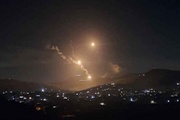
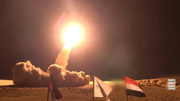

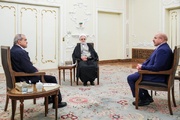
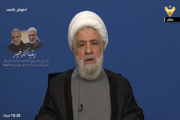
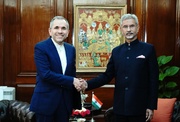


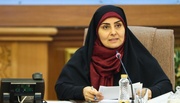





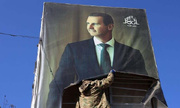


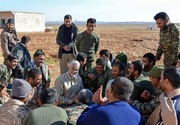
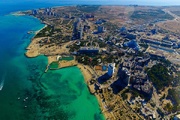
Your Comment